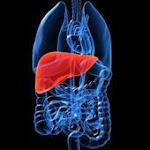My Treatment, post transplant. (Hepatitis C / Liver Transplant (Hep C) HCV Blog)
Monday, 1 November 2010
Hi All,
As promised, here are the details of the research study I have been asked to participate in since having my transplant.
In essence it is a study to test the effects of Warfarin (anticoagulant and rat-poison!) and its effects on the Hepatitis C virus on post liver transplant patients like me.
The study is called the 'WAFT-C' study and has been organised by the Imperial College, London and is run in conjunction with St James Hospital, Leeds specialist liver unit.
They believe that Warfarin, a cheap and well used drug, stops the HepC virus from 'grouping' and attacking the new liver.
Below is a patient information sheet that was given to me when I was invited to take part in the study and I hope it is of interest and answers any questions about the treatment, as it did for me. I have 'cut, copied and pasted' it for your information
I will post more info as to how I'm doing as I go forward (maybe even another video diary post) and results of Liver Biopsies as I have them done.
Thanks to all, any questions please e-mail me at: riosbarandgrill@gmail.com
Take care everyone.... Ian
Anticoagulation for Liver Fibrosis in patients Transplanted for Hepatitis C Virus Infection (WAFT-C)
You are being invited to take part in a research study. Before you decide it is important that you understand why the research is being done and what it will involve. Please take time to read the following information carefully and discuss it with others if you wish. Ask us if there is anything that is not clear or if you would like more information. Take time to decide whether or not you wish to take part. Thank you for reading this.
What is the purpose of the study?
We have found evidence that the blood coagulation system contributes to the development of liver fibrosis (scarring) in patients with hepatitis. In patients with hepatitis C, who have had a liver transplanted a significant proportion develop accelerated fibrosis in their transplanted liver. We wish to find out whether anti-coagulation (thinning the blood) slows down the development of this re-fibrosis following transplantation. This is a study lasting for 2 years which will tell us whether anti-coagulation has any beneficial effect and provide us with further information regarding factors associated with liver fibrosis post transplantation.
Why have I been chosen?
You have been asked to participate because you have had a recent liver transplant and are still infected with Hepatitis C.
Do I have to take part?
It is up to you to decide whether or not to take part. If you do decide to take part you will be given this information sheet to keep and be asked to sign a consent form. If you decide to take part you are still free to withdraw at any time and without giving a reason. A decision to withdraw at any time, or a decision not to take part, will not affect the standard of care you receive.
What will happen to me if I take part?
If you agree to participate at the beginning of the study you will be randomly allocated to one of two groups. One group will have anticoagulation in the form of a drug called warfarin. The second group will receive standard care post liver transplant care. The anticoagulation period will be 2 years.
We will organise a visit to take place one to three months after your transplant. At this visit blood tests will be taken and if you are allocated to the anticoagulation group, this will be started. During the period you are anti-coagulated you take warfarin tablets by mouth and we will monitor your blood carefully to make sure that the level of anticoagulation is correct. This will initially occur up to three to four times in the first week, and then weekly and subsequently monthly. Where possible will we try and coordinate these visits with your transplant clinic follow-up to minimize inconvenience to yourself. You will be followed up at 6 months, 12 months, 18 months and at 24 months to ensure there are no complications.
Liver biopsies will be performed in keeping with your routine care at 12 and 24 months following your transplant. The anticoagulation will be stopped 5 days prior to the biopsy, to allow your blood clotting to return to normal 24 hours before the biopsy. If no complications have occurred following the biopsy the anticoagulation will be recommenced 24 hours later.
A subgroup of patients will be invited to participate in a sub-study to evaluate non-invasive measures of liver fibrosis. A microbubble ultrasound of the liver and special MRI scan of the liver (MR spectroscopy) will be performed at 12 and 24 months and compared to the results of the corresponding liver biopsies.
What do I have to do?
Patients in the anti-coagulation group of the study will need to attend three or four times in the first week and then weekly and subsequently monthly for monitoring. During this period high risk sports such as mountaineering and downhill bike racing should be avoided. You should not take any aspirin or anti-inflammatory drugs and all new medications should be discussed with the study coordinator. There are no restrictions on normal activities, but one should minimize any changes to the intake of green leafy vegetables (spinach, greens and broccoli), green peas and oriental green tea. Drinking cranberry juice or taking other cranberry based products (capsules or concentrates) might increase the effect of warfarin in thinning the blood, and you should therefore avoid drinking or taking these products while taking warfarin. If you are female and become pregnant you would need to stop the medication and withdraw from the trial immediately.
What is the drug or procedure that is being tested?
Warfarin is a commonly used drug which reduces the formation of blood clots. It is frequently used for treating blood clots in the legs and pulmonary emboli (blood clots in the lung). When carefully monitored it is a safe drug which can be taken by mouth. The dose of the drug needs to varied from time to time in an individual to maintain effective but safe levels of anti-coagulation.
What are the alternatives for diagnosis or treatment?
At present there are currently no treatments available for treating accelerated liver fibrosis post liver transplant. Anti-viral therapy to eliminate the Hepatitis C virus is effective only in less than a third of patients. Re-transplantation is rarely an option. A treatment for liver fibrosis is therefore urgently required.
What are the side effects of any treatment received when taking part?
Warfarin does not normally produce any side effects. If the dose is too high then you may develop spontaneous bruising, bleeding from the gut or heavy periods. If these complications arise you should stop taking the medication and go immediately to the nearest casualty department and tell them that you are taking warfarin. Please contact St James Hospital Liver Unit, Leeds or Imperial College, London in the event of any problems
What are the possible disadvantages and risks of taking part?
Participation in this study may cause you some inconvenience and expose you to the small risk of over anti-coagulation. However, no other disadvantages can be anticipated.
Any woman who finds that she has become pregnant while taking part in the study should immediately tell her doctor.
What are the possible benefits of taking part?
We hope that the treatment will help you. However, this cannot be guaranteed. If there is some benefit then this may only last as long as you are taking the warfarin. The information we get from this study may help us to provide better treatment for you and other patients with liver fibrosis in the future.
What if new information becomes available?
Sometimes during the course of a research project, new information becomes available about the treatment/drug that is being studied. If this happens, your doctor will tell you about it and discuss with you whether you want to continue in the study. If you decide to withdraw your doctor will make arrangements for your care to continue. If you decide to continue in the study you will be asked to sign an updated consent form.
Also, on receiving new information your research doctor might consider it to be in your best interests to withdraw you from the study. He/she will explain the reasons and arrange for your care to continue.
What happens when the research study stops?
At the end of the study the anti-coagulation will stop. If the study shows potential benefit the warfarin may be continued under the guidance of your transplant clinic doctors.
What if something goes wrong?
Imperial College London holds insurance policies which apply to this study. If you experience harm or injury as a result of taking part in this study, you will be eligible to claim compensation without having to prove that Imperial College is at fault. This does not affect your legal rights to seek compensation. If you are harmed due to someone's negligence, then you may have grounds for a legal action. Regardless of this, if you wish to complain, or have any concerns about any aspect of the way you have been treated during the course of this study then you should immediately inform Dr Charles Millson or Professor Mark Thursz, (contact details as above). The normal National Health Service complaints mechanisms are also available to you. If you are still not satisfied with the response, you may contact the Imperial College Clinical Research Office.
Will my taking part in this study be kept confidential?
All information which is collected about you during the course of the research will be kept strictly confidential. Any information about you which leaves the hospital will have your name and address removed so that you cannot be recognised from it. In addition with your approval we will contact your own General Practitioner to notify him or her of your participation in the trial. This is done to ensure that all doctors involved in your care are aware of all the treatments you are receiving.
What will happen to the results of the research study?
The overall results of this research may be presented at meetings and published in one of the medical journals; however your identity will not be disclosed.
Who is organising and funding the research?
This study has been initiated and organised by Professor Thursz and colleagues in the Department of Medicine at St. James University Hospital, Leeds and Imperial College. The study is sponsored by Imperial College and funded externally. There are no commercial interests in the trial.
Who has reviewed the study?
This study has been reviewed by the Royal Free Hospital & Medical School Research Ethics Committee.
Contacts for Further Information.
For further information please contact Dr. Millson or Professor Thursz (contact details above).
In emergency please phone St. James University Hospital Switchboard and ask for the Liver Registrar.
Thank you for reading this Patient Information Sheet. If you decide to participate, you will be given a copy of this Information Sheet and a signed Consent Form to keep. If you do decide to join the study, we would also like to thank you for agreeing to take part.














2 comments:
Sounds promising Ian.I was hooked up to a giant syringe,loaded into an injection machine (that gives you a shot of Warfarin every so often.I had an embolisim,in my hand.I remember talking quite loudly that weekend on the ward & a bit high...Thins the blood,they say.
Good luck.
Well Ian, if you develop heavy periods I guess you will have something to worry about!!
Post a Comment